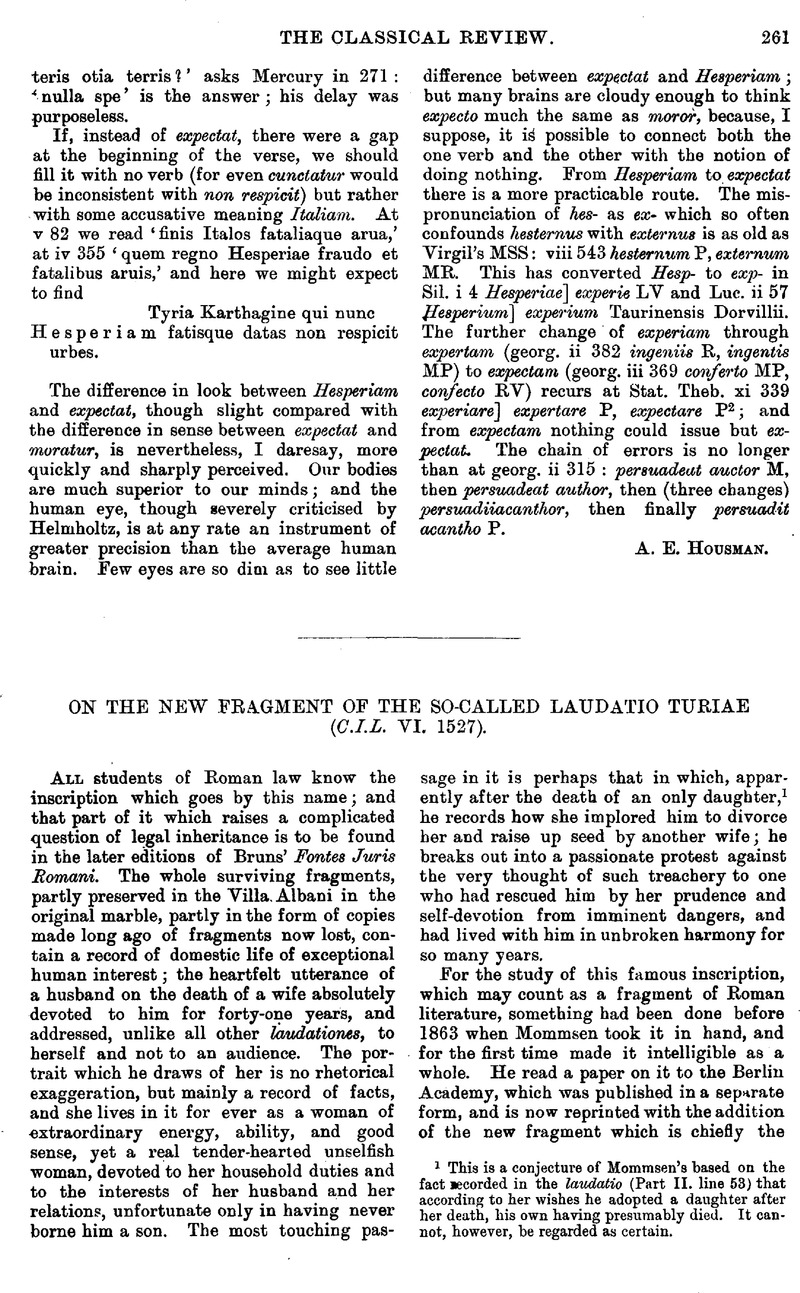No CrossRef data available.
Published online by Cambridge University Press: 27 October 2009

page 261 note 1 This is a conjecture of Mommsen's based on the fact lecorded in the laudatio (Part II. line 53) that according to her wishes he adopted a daughter after her death, his own having presumably died. It cannot, however, be regarded as certain.
page 262 note 1 Orbata es re(pente ante nuptiar)um diem utroque pa(rente in penatium soli)tudine una oc(cisis). It is difficult to see how the first five words can be otherwise completed.
page 262 note 2 As will be seen later on, it is just possible that this may refer to an earlier exercise of clemency by Julius; but if so, the paragraph which follows, and which clearly refers to the proscriptions of 43, conies in rather awkwardly. In my opinion there is a considerable gap still to be filled up between the new fragment and these mutilated words.
page 264 note 1
![]()
page 264 note 2 I use the word wife for convenience: but, as be seen directly, it is not clear whether the marriage had as yet taken place. The completion (defe)ndisti is almost certain.
page 264 note 3 It is interesting to find that the word is used no less than four times by Pompeius himself in the dispatches to Domitius preserved in Cic. Att. 8. 12; i.e. it is used of the opposite party and its leader in Jan. 49, the very time to which I believe the first lines of the fragment refer.
page 265 note 1 See above, note 2.
page 265 note 2 These words of Appian suggest a slight difficulty which does not seem to have been noticed. If Lucretius' father was killed in 82 B.c., his son must have been forty when he himself was proscribed, could not have been married till he was about thirty five, and delivered the laudatio when he was nearly eighty. But none of these things are impossible; and one might suppose, from the energy of the wife's character even before they were married, that at that time she, and therefore presumably her husband, were comparatively mature in years. It is to be noticed, too, that Appian does not say that the elder Lucretius was killed in 82, but only that he was taken.
page 266 note 1 The marble gives ‘fida rece-’ (Part II. Line 7), and the next line begins ‘sociosque consiliorum suorum ad me servandum’… It is difficult to see how else the line can be completed.